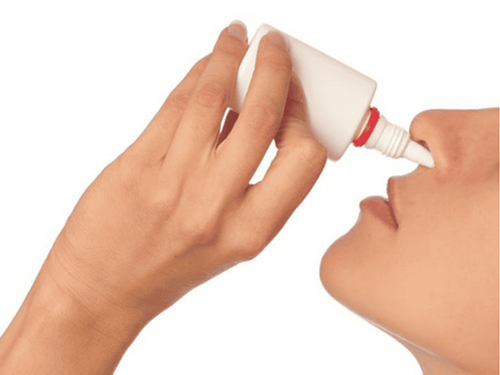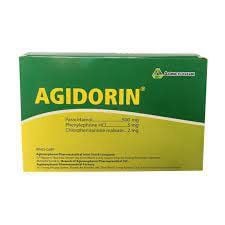This is an automatically translated article.
The article was professionally consulted by Dr. Nguyen Van Dinh - Head of Respiratory - Asthma - Allergy - Clinical Immunology Unit, Vinmec Times City International HospitalWeather allergy symptoms appear all year round, especially at the time of season change. Although the disease does not seriously affect health, weather allergies cause discomfort for sufferers.
1. What are weather allergies?
Currently, weather allergies are a very common disease in daily life. Allergies are actually caused by changes in hot-cold temperatures or humidity that affect the growth of mold allergens or changes in pollen concentrations in the air. When infected, the patient will have manifestations such as red skin, itching, hives, and different degrees of effects.
Some cases of other weather allergies are also accompanied by respiratory, nose and throat problems... making it difficult for patients to live their daily lives.
2. Signs of weather allergies

Red skin appears accompanied by persistent itching, signs of urticaria on the skin. Depending on the health, resistance and allergy level of the patient, each episode of red skin will have a certain flare-up time. Urticaria : Parallel to appear with signs of itching. These cases often show signs of edema, thick urticaria, white or pink. After a short period of time when the skin is exposed to weather factors such as cold rain, high humidity... the skin will develop hives. Eczema superinfection: patients will have signs of allergy, a red rash that may be accompanied by tiny blisters, yellow discharge, and many dandruff scales on the head, elbows, knees and face. Each episode of eczema that appears often lasts and affects the patient's skin. To avoid adverse health effects and prevent eczema from getting worse, early intervention is necessary. Allergic rhinitis: This symptom is common in patients with seasonal allergies. When infected, patients will feel dry nose and throat area, itchy nose area, eye discomfort, sneezing, stuffy nose, runny nose, insomnia, daytime drowsiness, fatigue, poor concentration... The patient will often feel discomfort in the nose area in waves, lasting about 20-30 minutes. Depending on the severity of different allergies, the frequency of allergic rhinitis episodes also varies. Wheezing, cough or shortness of breath: symptoms often recur again and again with each change of weather or season, it is necessary to seek screening for early detection of bronchial asthma to control the disease stably to avoid serious life-threatening changes. network, especially common in children or those with a previous diagnosis of asthma but not well controlled.
3. Why do we have seasonal allergies?
Disorders of the immune system in the body are the main cause of seasonal allergies. From there, allergic reactions will appear, the production of a series of antibodies and chemicals in the body to fight against stimuli from the external environment, causing harm to the body. The mechanism of histamine production is also an important activity in the immune system that also has a certain influence on allergies.
People with weather allergies when exposed to adverse factors will appear allergic symptoms very quickly.
4. What should you do when you have a weather allergy?
It is not possible to completely cure a weather allergy because it is related to each person's body and immune system. There will be people who are very susceptible to seasonal allergies, but there are also people who do not. For people with weather allergies, there are only solutions to treat them in batches and limit exposure to adverse weather factors.
Now, experts recommend allergy prevention along with allergy relief treatments at each flare-up.
5. How to treat seasonal allergies

Eat enough nutrients, lots of fruits and vegetables, green tea and have a reasonable work and rest regime to increase the body's resistance.
Limit exposure to dust, pollen, absolutely do not smoke or drink alcohol to avoid irritating the allergy to become worse.
When allergy relief measures do not work, the patient should immediately go to a specialist doctor for timely diagnosis and treatment. The disease will have unwanted complications if the allergy is prolonged.
Anyone can suffer from seasonal allergies, it not only makes the patient uncomfortable but also affects life and causes dangerous complications. Therefore, when the symptoms become worse, it is necessary to immediately go to reputable medical facilities to find the most appropriate and effective treatment solution.
Please dial HOTLINE for more information or register for an appointment HERE. Download MyVinmec app to make appointments faster and to manage your bookings easily.
Articles refer to the source WebMD.com













